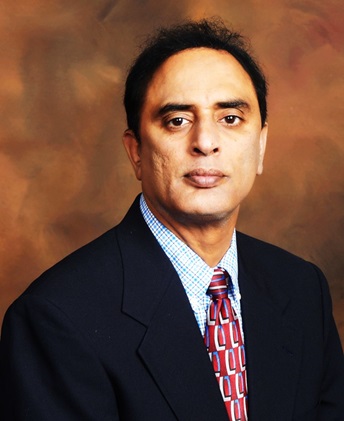
Statement of Personal Qualification & Vision for EWRI
My involvement with ASCE/EWRI began as a student member of ASCE approximately 30 years ago. I became involved at the national level about 20 years ago and have held numerous positions within task committees, technical committees, and councils. I was also actively involved in organizing several annual conferences, serving in roles such as track chair, organizing committee member, technical chair, and general chair. In all these volunteer roles, I have always admired the dedication and technical expertise of my fellow EWRI members, as well as their commitment to advancing the profession, promoting the health and well-being of citizens, building better infrastructure, and protecting the environment and natural resources. I have had the privilege of working in construction, consulting, academia, and utilities, which has provided me with valuable insights into the unique perspectives of our diverse membership. It has also deepened my understanding of the essential collaboration between academia, consulting, municipal, state, and federal agencies. The exceptional opportunities EWRI offers for such collaboration have been instrumental in my professional growth. My experience spans from basic and applied research to the planning and installation of complex infrastructure projects. I fully appreciate and support EWRI's vision "to be a recognized worldwide leader in integrating technical expertise and public policy into the planning, design, construction, and operation of environmentally sound and sustainable infrastructure that impacts air, land, and water resources."
Aging infrastructure, variable climate, increased stress on the environment and resources, more stringent regulations, and reduced budgets present significant challenges and demand creative, sustainable, and optimal solutions. According to the World Health Organization (WHO), contaminated drinking water is estimated to cause 502,000 diarrheal deaths each year, and half of the world’s population lives in water-stressed areas. Moreover, increased infrastructure spending to address global water and sanitation needs, along with various social, political, and economic issues, introduces a separate set of challenges and opportunities. New technologies, materials, treatment methods, and management strategies are essential to help engineers and scientists build infrastructure more efficiently while minimizing environmental impact and supporting sustainability. I believe these global and local challenges present unique opportunities for EWRI members, and EWRI has an important role to play in addressing these needs. I will bring my leadership abilities, collaborative skills, and experience to promote EWRI as a vibrant institute that fosters the advancement of the profession, supports the development of its members, encourages collaborative partnerships with other organizations, and champions sustainability.
Some of my objectives for the institute are:
- Improve interaction between industry, utilities, and researchers to efficiently identify optimal and resilient solutions to critical infrastructure and environmental challenges.
- Support the sustainability of the institution by offering services and products that attract new and younger members while retaining existing members.
- Leverage the technical knowledge of the members and technical councils to advance the profession by creating innovative solutions to environmental and water resources problems through interdisciplinary efforts.
- Promote collaboration with other organizations and seek national and global opportunities for EWRI and its members.

